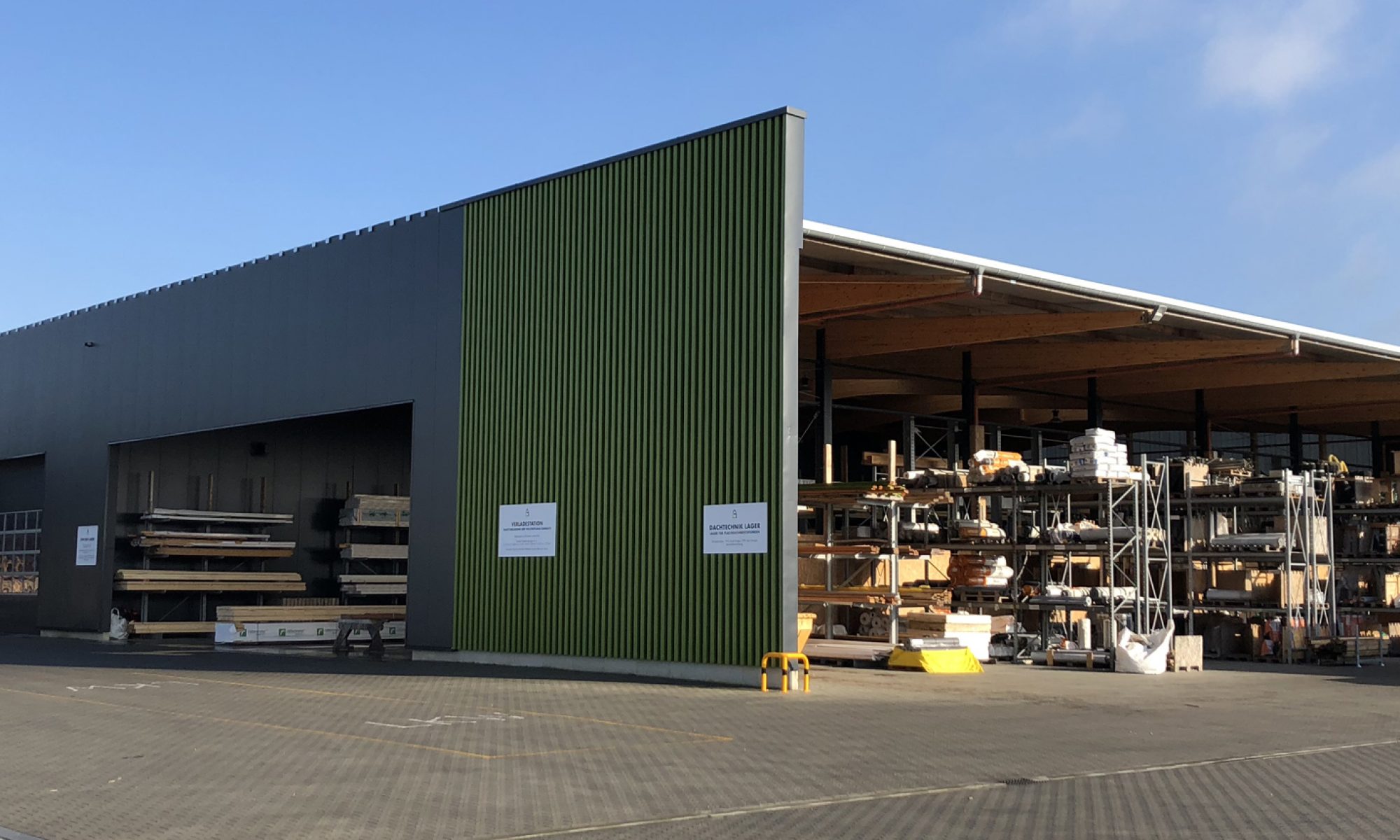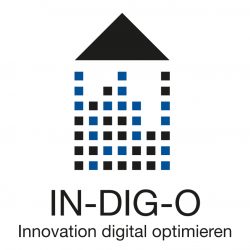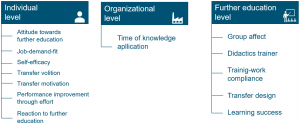GERMAN VERSION OF THE PAGE (GE)
NETWORK CONFERENCE FOR DIGITAL VOCATIONAL EDUCATION OF THE FUTURE CENTER OF SAXONY
We were very pleased about the request to give a keynote speech on the topic of digital vocational education at the 2nd network conference of the Zukunftszentrum Sachsens. Of course, we followed the request. M.Sc. Laura Mehner presented on 09.03. at the conference various scientific results of the project, especially on technology acceptance in the construction industry.
IN-DIG-O AT THE SPRING CONFERENCE OF THE SOCIETY FOR OCCUPATIONAL SCIENCES (GFA) 2022
The project IN-DIG-O was represented at the spring congress of the GFA 2022. The congress took place from 02 to 04 March 2022 in Magdeburg and was themed „TECHNOLOGY AND EDUCATION IN HYBRID WORKING ENVIRONMENTS“. IN-DIG-O was represented with two contributions, each of which was presented at the conference.
The first paper was submitted by Prof. Dr. Simone Kauffeld, M. Sc. Laura Mehner & Dr. Sandra Rothenbusch and was entitled „Opportunities, Risks and Required Competencies in the Use of the Learning and Knowledge Transfer Tool (LeWiT Tool)“. The second presentation was given by Darien Tartler, Dr. Sandra Rothenbusch & Prof. Dr. Simone Kauffeld and was entitled „Competencies for the successful use of digital technologies in the construction industry: the building modeling tool Koop-3D.“
Both presentations dealt with technology acceptance, as well as opportunities and risks & the required competencies for using the tools in companies. It could be shown that the technology acceptance for both tools was highly estimated and that more opportunities than risks are perceived when using the tools.
IN-DIG-O AT THE 12TH MEETING OF THE SPECIALIST GROUPS FOR WORK, ORGANIZATIONAL AND BUSINESS PSYCHOLOGY AS WELL AS ENGINEERING PSYCHOLOGY OF THE DGPS (AOW) IN CHEMNITZ
In September 2021, the 12th meeting of the specialist groups of work, organizational and business psychology as well as engineering psychology of the DGPs (AOW) took place in Chemnitz. The project IN-DIG-O was represented with the contribution „Chances and risks of digital support of learning and knowledge transfer by the LeWiT tool from the perspective of relevant stakeholders an experimental vignette study on the integration of a report to managers“ by Dr. Sandra Rothenbusch, Prof. Dr. Simone Kauffeld and M.Sc. Laura Mehner. The results of an experimental vignette study were presented. 240 stakeholders consisting of potential tool users, managers, HR managers and trainers were surveyed on the acceptance as well as the opportunities and risks of a digital support tool for learning and knowledge transfer by means of an online questionnaire. They were randomly assigned to receive one of two vignettes describing the tool, which differed in whether the tool contained a results report to managers or not.
SPRING CONFERENCE OF THE GESELLSCHAFT FÜR ARBEITSWISSENSCHAFTEN (GFA) 2021
The IN-DIG-O project was represented at this year’s spring congress of the GFA. The congress took place virtually from 03 to 05 March 2021 and had the theme „Arbeit HumAIne Gestalten“. IN-DIG-O was represented with two contributions, each of which was the subject of a presentation at the conference.
The first contribution was submitted by Prof. Dr. Simone Kauffeld and M. Sc. Laura Mehner and was entitled „Supporting learning and knowledge transfer – the possibilities of digital tools“. The paper was about how HR development can be used in the transformation process to drive organisational development.
The second presentation was given by Dr. Sandra Rothenbusch and was entitled „Acceptance-promoting implementation of digital tools in work organisation: an integrative review“. The paper discussed that it makes sense to use measures to ensure technology acceptance throughout the entire technology implementation process. The systematic literature review used shows a) which facilitating and hindering factors influence technology acceptance in the different phases of technology implementation, b) which temporal dynamics between the factors in the process have to be taken into account and c) to what extent the process has to be adapted according to certain characteristics such as the goal of the tool implementation (e.g. outsourcing or supporting work steps) or individual characteristics of the users (e.g. age and gender).
LECTURE ON THE IMPLEMENTATION OF „VIRTUAL TWINS“ AT THE FEDERAL INSTITUTE FOR OCCUPATIONAL SAFETY & HEALTH THE INSTITUTE FOR WORK & QUALIFICATION (IAQ) OF THE UNIVERSITY OF DUISBURG-ESSEN
On 03 December 2020, Dr Sandra Rothenbusch gave an invited lecture at the virtual workshop „Sociotechnical approaches in practical application“ organised by the Federal Institute for Occupational Safety & Health (BAuA) and the Institute for Work & Qualification (IAQ) at the University of Duisburg-Essen. The lecture was about the use of the sociotechnical approach to implement „virtual twins“. Dr Sandra Rothenbusch reported on experiences and implications from two research and development projects in which the socio-technical approach was used at the Chair of Work, Organisational & Social Psychology at the Technical University of Braunschweig to design the implementation of „virtual twins“.
PUBLICATION OF THE ARTICLE „CHANGE POTENTIALS THROUGH THE DIGITALISATION OF CROSS-TRADE COOPERATION OF SMALL AND MEDIUM-SIZED ENTERPRISES IN THE CONSTRUCTION INDUSTRY TOWARDS BUILDING INFORMATION MODELLING (BIM) – A CASE ANALYSIS“ BY DR. SANDRA ROTHENBUSCH & PROF. DR. SIMONE KAUFFELD
On 06 August 2020, the journal „Gruppe. Interaction. Organisation. Zeitschrift für Angewandte Organisationspsychologie (GIO)“ an article by Dr. Sandra Rothenbusch & Prof. Dr. Simone Kauffeld was published. In the article, a case study is described, on the basis of which it is deduced how cooperation between companies and trades in the construction industry could change through the introduction of a digital tool for 3D modelling of buildings. The focus of the article is the possible change in the work processes and work design of the cross-company and cross-trade cooperation of a medium-sized timber construction company in the planning phase of building construction due to the introduction of the technology. The actual and target state as well as the possible consequences of the introduction of the digital tool are discussed. The article can be viewed at https://doi.org/10.1007/s11612-020-00526-w.
Spring Conference of the Gesellschaft für Arbeitswissenschaften (GFA) 2020
The IN-DIG-O project was represented at this year’s spring congress of the GFA. The congress took place virtually from 16 to 18 March 2020 and was themed „Digital change, digital work, digital man?“. IN-DIG-O was represented with two papers, each of which was presented at the conference and a long version of each paper was published in the conference anthology. You will find a brief insight into the content of the two contributions below and, if you are interested, you can download the published articles:
– PDF: What factors make the difference? Through what does learning transfer to everyday work occur after continuing education and when does it fail to happen?
– PDF: Implementation of Building Information Modeling in cross-trade cooperation in the construction industry: Perceived opportunities and risks from the perspective of those involved in the cooperation
What factors make the difference? How does learning transfer occur to everyday work after continuing education and when does it fail to do so?
The article presents the results of a study conducted in IN-DIG-O, which dealt with the learning transfer problem. The learning transfer problem refers to the problem that despite a high financial and personnel effort (BMBF, 2018; Kauffeld, 2016), only 10% to 34% of what is learned in continuing education is transferred into everyday work (Hall et al., 2014; Saks & Belcourt, 2006; cf. Baldwin et al., 2017; Bergmann & Sonntag, 2006, Grossmann & Salas, 2011; Michalak, 1981, among others). Learning transfer is influenced by different variables, the so-called learning transfer factors, which can be divided into individual, organizational, and training-specific transfer factors (Colquitt et al., 2000; Hagemann & Kluge, 2014; Holton, 1996; Hochholdinger et al., 2008; Kauffeld, 2016).
The research conducted in IN-DIG-O looked at the extent to which learning transfer factors differed depending on whether there was a large or small transfer of learning after the training courses. To capture this, questionnaires were developed, each of which captured 42 learning transfer factors. A craft sample of 22 persons was asked to answer these questionnaires in each case for an advanced training with high and for an advanced training with low learning transfer. Thirteen factors were found which differed significantly in their expression between the training courses; these are shown in the following figure.
These factors should particularly be taken into account by the various actors in further training courses in order to achieve the highest possible transfer of what has been learned into everyday working life. If you have any questions or suggestions regarding this article, please contact Laura Kruse (l.kruse@tu-bs.de).



